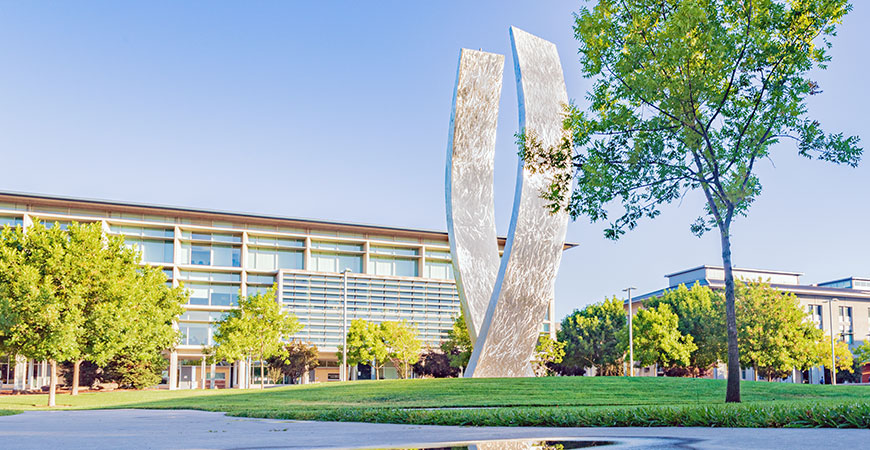
Since 2011, the Hellman Fellows Fund has provided close to 60 UC Merced assistant professors with much-needed research support in the form of seed funding. The prestigious Hellman Fellowship has launched countless careers at UC Merced and across the UC system.
Now, thanks to a generous new $3.5 million gift from the Hellman family, UC Merced will permanently establish the UC Merced Society of Hellman Fellows starting in 2021. The endowment allows the program to continue in perpetuity, while affording the campus more flexibility in funding early-career research.
“The UC Merced Society of Hellman Fellows marks a new and powerful step in our long partnership with the Hellman Foundation, and will help us build the future of research at UC Merced — and indeed the future of higher education,” Chancellor Juan Sánchez Muñoz said.
With this gift and other similar gifts at all 10 campuses, the Hellman Family Foundation has committed a total of $125 million for outstanding early-career researchers across all fields, including social sciences, science, technology, engineering and math (STEM), humanities and the arts. At UC Merced, former fellows have gone on to receive significant grants, including from the National Institutes of Health and National Science Foundation; to become successful authors in such prestigious journals as Nature; to serve in notable leadership roles; and more.
Professors Jennifer Hahn-Holbrook, Daniel Beller, Ahmed Sabbir Arif and Xuecai Ge are this year’s recipients of the Hellman Fellowships, bringing the campus total to 57 recipients spanning all three schools.
The Hellman Fellows Fund was established by Chris and Warren Hellman in 1995 and has provided support to faculty on all 10 UC campuses.
“My parents, Warren and Chris Hellman, used to say that creating the Hellman Fellows Program was one of the best things our family ever did,” Hellman Fellows Fund President Frances Hellman said. “Having had the opportunity to support more than 1,900 faculty members over the years, I enthusiastically agree.
“Their discoveries, commitment to their work and their great potential continues to inspire us year after year,” she said. “We are thrilled to be carrying on our father’s legacy by ensuring that the Hellman Fellows Program can exist in perpetuity throughout the University of California system.”
UC Merced will raise matching gifts for three years to expand the Society of Hellman Fellows’ reach in supporting early career research. Vice Provost for the Faculty and McClatchy Chair in Communications Teenie Matlock will administer the program. Next year’s call for proposals will be sent out this fall.
“At the University of California, it is important to help early-career faculty achieve research excellence,” Matlock said. “At a young institution like UC Merced, where world-changing research is an integral part of our identity and we are still growing our faculty, support like the Hellman Fellowships is vital. We are grateful for this opportunity.”
This year’s recipients come from all three schools at UC Merced, with each working on innovative projects:
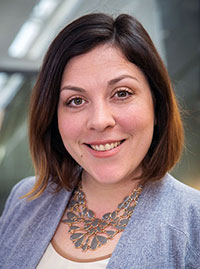 Health psychologist Jennifer Hahn-Holbrook, School of Social Sciences, Humanities and Arts, receives $48,500 to help answer whether breast milk helps babies tell time. “We know the nutritional, immunological and hormonal composition of human milk changes dramatically across the day,” Hahn-Holbrook said. “What we do not know is how this circadian variation impacts infant health and development. This project will investigate how daily changes in human milk affect infant sleep, behavior and growth.” Eighty-five percent of breastfed infants in the U.S. regularly drink pumped milk that is not necessarily circadian-matched — for example, they might drink morning-pumped breastmilk in the evening. Receiving scrambled circadian signals could hinder the emergence of healthy circadian rhythms in sleep, digestion and behavior. “If we do find that circadian variation helps babies regulate their circadian biology, there is a relatively simple fix,” Hahn-Holbrook said. “Mothers can label their milk with the time it was pumped and coordinate infant feedings to offer morning milk in the morning, afternoon milk in the afternoon and night milk at night.”
Health psychologist Jennifer Hahn-Holbrook, School of Social Sciences, Humanities and Arts, receives $48,500 to help answer whether breast milk helps babies tell time. “We know the nutritional, immunological and hormonal composition of human milk changes dramatically across the day,” Hahn-Holbrook said. “What we do not know is how this circadian variation impacts infant health and development. This project will investigate how daily changes in human milk affect infant sleep, behavior and growth.” Eighty-five percent of breastfed infants in the U.S. regularly drink pumped milk that is not necessarily circadian-matched — for example, they might drink morning-pumped breastmilk in the evening. Receiving scrambled circadian signals could hinder the emergence of healthy circadian rhythms in sleep, digestion and behavior. “If we do find that circadian variation helps babies regulate their circadian biology, there is a relatively simple fix,” Hahn-Holbrook said. “Mothers can label their milk with the time it was pumped and coordinate infant feedings to offer morning milk in the morning, afternoon milk in the afternoon and night milk at night.”
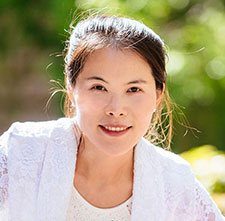 Developmental neurobiologist Xuecai Ge, with the School of Natural Sciences, receives $50,000 for a proteomic study of signaling proteins in primary cilium in the developing brain. “The embryonic brain constantly requires signaling cue molecules to instruct its proper formation,” Ge explained. “The primary cilium, known as the cell’s antenna, is a tiny cell surface organelle that senses the cue molecules and converts them into instructions for the cell to follow. Mutations that disturb the structure of the primary cilium are associated with a wild spectrum of human diseases named ciliopathy. Yet, so far we don't have a complete picture of what proteins are employed by the primary cilium to sense and convert the cue molecules.” Ge intends to fill that gap with state-of-the-art proteomic technology to reveal a complete catalog of proteins in the primary cilium in the developing mouse brain. The results will help understand cellular mechanisms that govern brain formation and decipher how disruption of cell signaling leads to developmental disorders with the aim of offering hope for therapeutic interventions.
Developmental neurobiologist Xuecai Ge, with the School of Natural Sciences, receives $50,000 for a proteomic study of signaling proteins in primary cilium in the developing brain. “The embryonic brain constantly requires signaling cue molecules to instruct its proper formation,” Ge explained. “The primary cilium, known as the cell’s antenna, is a tiny cell surface organelle that senses the cue molecules and converts them into instructions for the cell to follow. Mutations that disturb the structure of the primary cilium are associated with a wild spectrum of human diseases named ciliopathy. Yet, so far we don't have a complete picture of what proteins are employed by the primary cilium to sense and convert the cue molecules.” Ge intends to fill that gap with state-of-the-art proteomic technology to reveal a complete catalog of proteins in the primary cilium in the developing mouse brain. The results will help understand cellular mechanisms that govern brain formation and decipher how disruption of cell signaling leads to developmental disorders with the aim of offering hope for therapeutic interventions.
“The UC Merced Society of Hellman Fellows marks a new and powerful step in our long partnership with the Hellman Foundation, and will help us build the future of research at UC Merced — and indeed the future of higher education.”
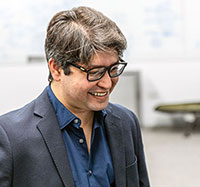 Computer scientist Ahmed Sabbir Arif, with the School of Engineering, receives $50,000 to develop technology that enables motor-impaired people to input text on mobile and wearable devices. “People with motor impairments, especially those who are unable to perform fine motor skills, struggle to input text on smartphones and smartwatches because there is not an efficient input method designed for them. Existing methods are time-consuming, error prone, compromise privacy and security, and have limited functionality and high learning curves,” Arif said. “That limits people’s productivity and their social and networking abilities, impeding their integration into society, independent living, and economic and social self-sufficiency.” He said his research “makes computer systems accessible to everyone by developing intuitive, effective and enjoyable input and interaction techniques powered by artificial intelligence and language models that account for both cognitive and motor aspects.” These techniques are aimed at various computer systems, including mobile devices, wearables, public displays and head-mounted displays, and optimized for a range of users, including adults, children, and people with low vision, blindness and motor impairment.
Computer scientist Ahmed Sabbir Arif, with the School of Engineering, receives $50,000 to develop technology that enables motor-impaired people to input text on mobile and wearable devices. “People with motor impairments, especially those who are unable to perform fine motor skills, struggle to input text on smartphones and smartwatches because there is not an efficient input method designed for them. Existing methods are time-consuming, error prone, compromise privacy and security, and have limited functionality and high learning curves,” Arif said. “That limits people’s productivity and their social and networking abilities, impeding their integration into society, independent living, and economic and social self-sufficiency.” He said his research “makes computer systems accessible to everyone by developing intuitive, effective and enjoyable input and interaction techniques powered by artificial intelligence and language models that account for both cognitive and motor aspects.” These techniques are aimed at various computer systems, including mobile devices, wearables, public displays and head-mounted displays, and optimized for a range of users, including adults, children, and people with low vision, blindness and motor impairment.
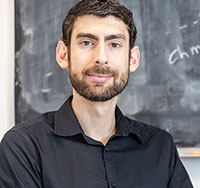 Soft matter and biological physicist Daniel Beller, with the School of Natural Sciences, receives $50,000 for his project to develop models to understand and predict the complex motions of three-dimensional active liquid crystals. These materials behave like fluids but have an elasticity that resists deformations as well as other internal forces that amplify deformations — a competition that results in flows of a chaotic and continually shifting nature. He and his lab aim to understand the dynamics of the chaotic flows by finding laws governing the motions of these topological defects. “Most previous studies have focused on active nematics confined to surfaces, but our models will apply to the internal structure of unconfined 3D materials,” Beller said.
Soft matter and biological physicist Daniel Beller, with the School of Natural Sciences, receives $50,000 for his project to develop models to understand and predict the complex motions of three-dimensional active liquid crystals. These materials behave like fluids but have an elasticity that resists deformations as well as other internal forces that amplify deformations — a competition that results in flows of a chaotic and continually shifting nature. He and his lab aim to understand the dynamics of the chaotic flows by finding laws governing the motions of these topological defects. “Most previous studies have focused on active nematics confined to surfaces, but our models will apply to the internal structure of unconfined 3D materials,” Beller said.
Lorena Anderson

Senior Writer and Public Information Representative
Office: (209) 228-4406
Mobile: (209) 201-6255






